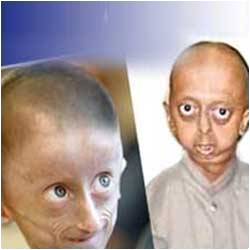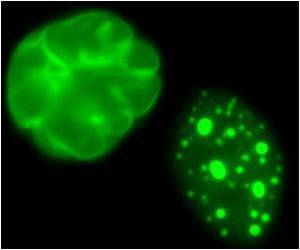
Kerry Okines, Hayley’s mother, posted the sad news on Facebook, "My baby girl has gone somewhere better. She took her last breath in my arms at 9.39 pm."
“Hayley was being treated for pneumonia, but she returned home shortly before she died. She came home for an hour and she saw her puppies, little brother Louie and sister Ruby. I think she wanted to come home to say goodbye to everybody. I think she knew that yesterday was going to be the time, ” said, Hayley’s father, Mark Okines.
Progeria left Hayley with a 104-year-old’s body. She had been informed that she would not live past the age of 13. In 2007, she began undergoing pioneering treatment at Boston Children’s Hospital, MA, as part of the first clinical trial for the condition.
In September 2012, the trial was a success, revealing how a farnesyltransferase inhibitor (FTI) improved the weight, bone structure and cardiovascular health of children with progeria.
Ever since 13 years, Hayley wrote an autobiography called "Old Before My Time", along with a documentary series.
The Progeria Research Foundation praised the teenager for her contribution to progeria research, "The entire PRF community mourns the loss of one of our shining stars, Hayley Okines. Hayley was one of the first participants in the ongoing progeria clinical trials. Hayley was a pioneer, and one of the reasons that we now have the first treatment for progeria. Today we remember her tremendous courage and determination."
Advertisement
Children with progeria rarely live past the age of 14, often passing away from ailments that affect the elderly, such as heart disease and stroke.
Advertisement
Source-Medindia













